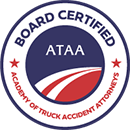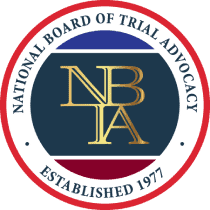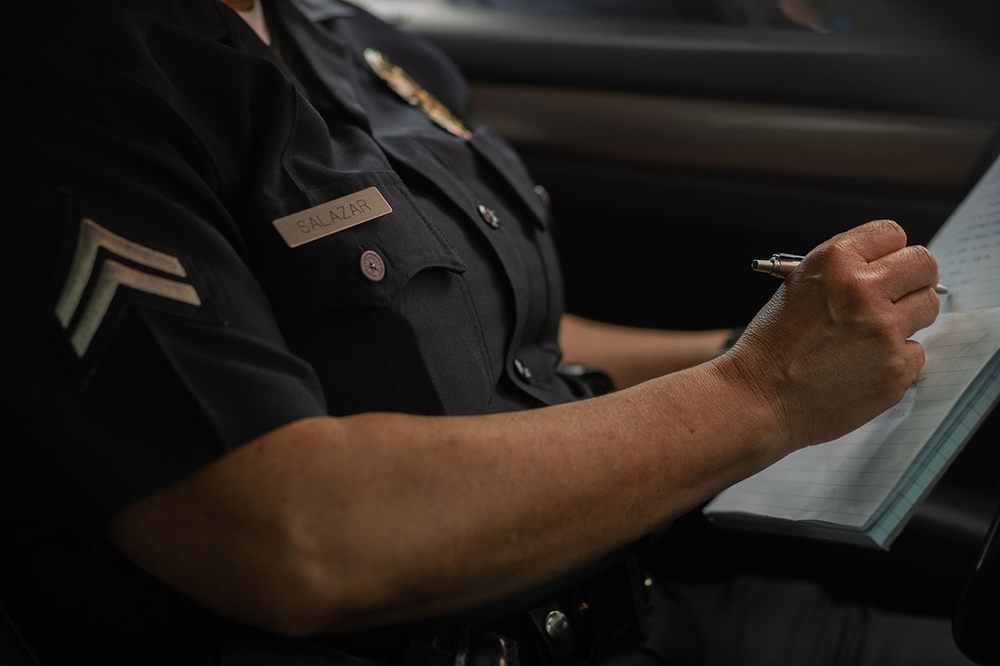Do I Need To File a Police Report After a Truck Crash?
There are a lot of things to take care of after being involved in a truck accident.
The time you used to spend going to work or school or taking care of your family may now be devoted to doctor’s visits, phone calls with the insurance company, and efforts to figure out transportation. You may be unable to perform your job, in pain, and worried about your financial security.
It may feel like you’re facing task after endless task. And then you realize there’s something else you may need to do. You’re asking yourself: Do I need to file a police report after a truck crash?
At Trucking Injury Law Group, we know the challenges you’re facing. Below, we’ve compiled state laws for when you must file a police report after a truck accident. We hope this information helps take one more research task off your plate.
There are other ways our lawyers can help in the aftermath of a commercial truck crash. On behalf of our clients, we routinely handle insurance company communications, file paperwork, gather medical records and bills, and document evidence needed to file a claim with the at-fault party’s insurance company.
If you’re in the process of recovering from a commercial vehicle crash, contact us now. We’ll start with a completely free consultation to meet and discuss how we can help in your case.
Accident Reporting Requirements Are Set by State Law
We’d like to begin by stating that it is almost always a good idea to report a truck crash. These types of motor vehicle accidents are most often serious and result in serious damage to vehicles and occupants involved.
If you are involved in a crash with a commercial motor vehicle (CMV), call law enforcement to the scene so a police report can be made there. You can also ask the responding officer about the reporting requirements in the jurisdiction where your crash occurred. This step additionally serves the purpose of creating a timeline and documenting the time, location, and details of the crash—information vital to a truck accident injury claim.
The exact requirements for when and how to report a motor vehicle accident are determined at the state level. Each state has its own set of laws governing crash reporting requirements.
We’ve summarized crash reporting laws for Nevada, Oregon, Washington, and Idaho.
When You Need To Report a Truck Crash in Nevada
Reporting requirements in Nevada necessitate the filing of a report when the accident involves:
- Injury to one or more person
- The death of any involved parties
- Property damage that reaches $750 or above
If your vehicle was involved in the crash in Nevada, you have 10 days to file a written or electronic report with the Nevada Department of Motor Vehicles. However, if a police officer makes an accident report that includes all necessary information, you are not required to make another report of your own.
When You Need To Report a Truck Crash in Oregon
You must complete and submit an Oregon Traffic Crash and Insurance Report to the Oregon Department of Motor Vehicles within 72 hours if any of these criteria are met:
- Vehicle or other property damage over $2,500
- Injury (no matter how minor)
- Fatality
- A vehicle must be towed from the scene of the crash
In Oregon, even if a police officer files an accident report, you must still file your own Crash and Insurance Report with the Oregon DMV.
These reporting requirements still apply to you even if you are not a resident of Oregon, do not possess an Oregon license, or your vehicle is registered in another state.
When You Need To Report a Truck Crash in Washington
Motorists who were involved in a truck accident in Washington can make a report using the Online Motor Vehicle Collision Reporting (OMVCR) system. Washington State Patrol (WSP) specifies that a report must be made when the accident involves:
- $1,000 or more in property damage
- Any injuries
If a police officer makes a report at the crash site, you do not need to submit your own report.
When You Need To Report a Truck Crash in Idaho
Idaho state law requires all involved drivers to give notice of the crash in Idaho to the nearest local or state police department “immediately, by the quickest means of communication,” if any of the following are met:
- Any person suffered any type of injury
- Any person was killed in the collision
- There was property damage in excess of $1,500
The best way to report the crash is to call 911 at the scene. If a law enforcement officer responds and completes a report, you do not need to file additional paperwork with the police department on your own. When the driver of the involved vehicle is unable to make the report due to injury, the responsibility is passed to other occupants of the vehicle.
When a CMV Crash Is Reported to the Federal Motor Carrier Safety Administration (FMCSA)
These state laws listed above pertain to all types of motor vehicle crashes, including cars, trucks, and motorcycles. But commercial motor vehicle crashes are also subject to federal laws.
The Federal Motor Carrier Safety Administration (FMCSA), a division of the U.S. Department of Transportation (DOT), is the government body that oversees the national trucking industry.
It is not your responsibility to make a truck accident report to the FMCSA after a CMV crash. But your report to local authorities can help make sure crash-related data gets where it needs to go—and that CMV operators and trucking companies do what they are required by law to do.
Reports made to the FMCSA are very important to industry safety. They help inform trucking legislation and identify trends of dangerous truck driver behaviors, among other vital functions.
A truck crash must be reported to the FMCSA when it involves any of the following:
- Any truck used on public highways with a gross vehicle weight rating (GVWR) or combined weight of over 10,000 pounds
- Any motor vehicle designed to transport more than eight people, including the driver
- Any vehicle transporting hazardous materials (regardless of weight)
Trucks known by the names semi-trucks, 18-wheelers, tractor-trailers, and big rigs fall into this category, as do many other types of delivery vehicles, dump trucks, buses, cement mixers, logging trucks, and other large transportation vehicles.
A federal report must be made when one of these vehicles is involved in a crash with:
- A fatality
- An injury
- A tow-away
Moving Forward After Being Involved in a Truck Crash
Filing a police report after a truck crash is one way to further efforts toward trucking safety. But there are other steps you can take to protect your own rights and the wellbeing of others. Perhaps the most important step you can take is to hold the negligent truck driver or trucking company responsible for their harmful actions through a truck accident claim.
Trucking industry safety is central to what we do at our law group. Our Super Team came together because we share the mutual mission of making the beautiful roads and highways of the Northwest safer for all of us.
If you or a loved one suffered because a CMV owner or operator failed to uphold safety standards, we want to help. Trucking Injury Law Group is now taking new clients in Oregon, Nevada, Idaho, and Washington. Contact us to schedule a free case evaluation.






